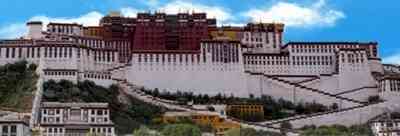US Congress reintroduces Tibet-China conflict bill
As the legislative year begins, the US Congress is already demonstrating its bipartisan commitment to resolving China's illegal occupation of Tibet by reintroducing a bill pressuring Beijing to resume dialogue with the Dalai Lama's envoys.

Dharamsala, Feb 9 (IANS) As the legislative year begins, the US Congress is already demonstrating its bipartisan commitment to resolving China's illegal occupation of Tibet by reintroducing a bill pressuring Beijing to resume dialogue with the Dalai Lama's envoys.
Massachusetts Representative Jim McGovern (Democrat), Texas Representative Michael McCaul (Republican), Oregon Senator Jeff Merkley (Democrat), and Indiana Senator Todd Young (Republican), announced the reintroduction of the Promoting a Resolution to the Tibet-China Conflict Act on Wednesday.
The legislation was previously introduced in the House on July 13, 2022 and in the Senate on December 20 last year.
The announcement comes as Penpa Tsering, the Sikyong (President) of the Central Tibetan Administration, which provides democratic governance for Tibetans in exile, is visiting Washington to meet with US lawmakers --including the main sponsors of the legislation -- and Biden administration officials.
Known as the Resolve Tibet Act, the bill will make it official US policy that China must resume dialogue with the envoys of the Dalai Lama, as the conflict between Tibet and China is unresolved and Tibet's legal status remains to be determined under international law.
The two sides held 10 rounds of dialogue between 2002-2010, but since then, the dialogue process has remained stalled.
China has illegally occupied Tibet for over 60 years, forcing the Dalai Lama into exile in 1959.
As a result of the Chinese government's decades of extreme human rights abuses, Tibet is now the least-free country on earth alongside South Sudan and Syria, according to the watchdog group Freedom House.
The Resolve Tibet Act offers new hope that the decades-long crisis in Tibet can come to a peaceful end.
What the bill does?
It will make it official US policy that the conflict between Tibet and China is unresolved and Tibet's legal status remains to be determined under international law; recognise that Tibetans have a right to self-determination and that China's policies preclude them from exercising that right and fault China for failing to meet expectations of participating in dialogue with the Dalai Lama or his representatives.
India is home to the Dalai Lama and some 100,000 Tibetan exiles. The Dalai Lama is based in the northern hill town of Dharamsala.


 IANS
IANS 










